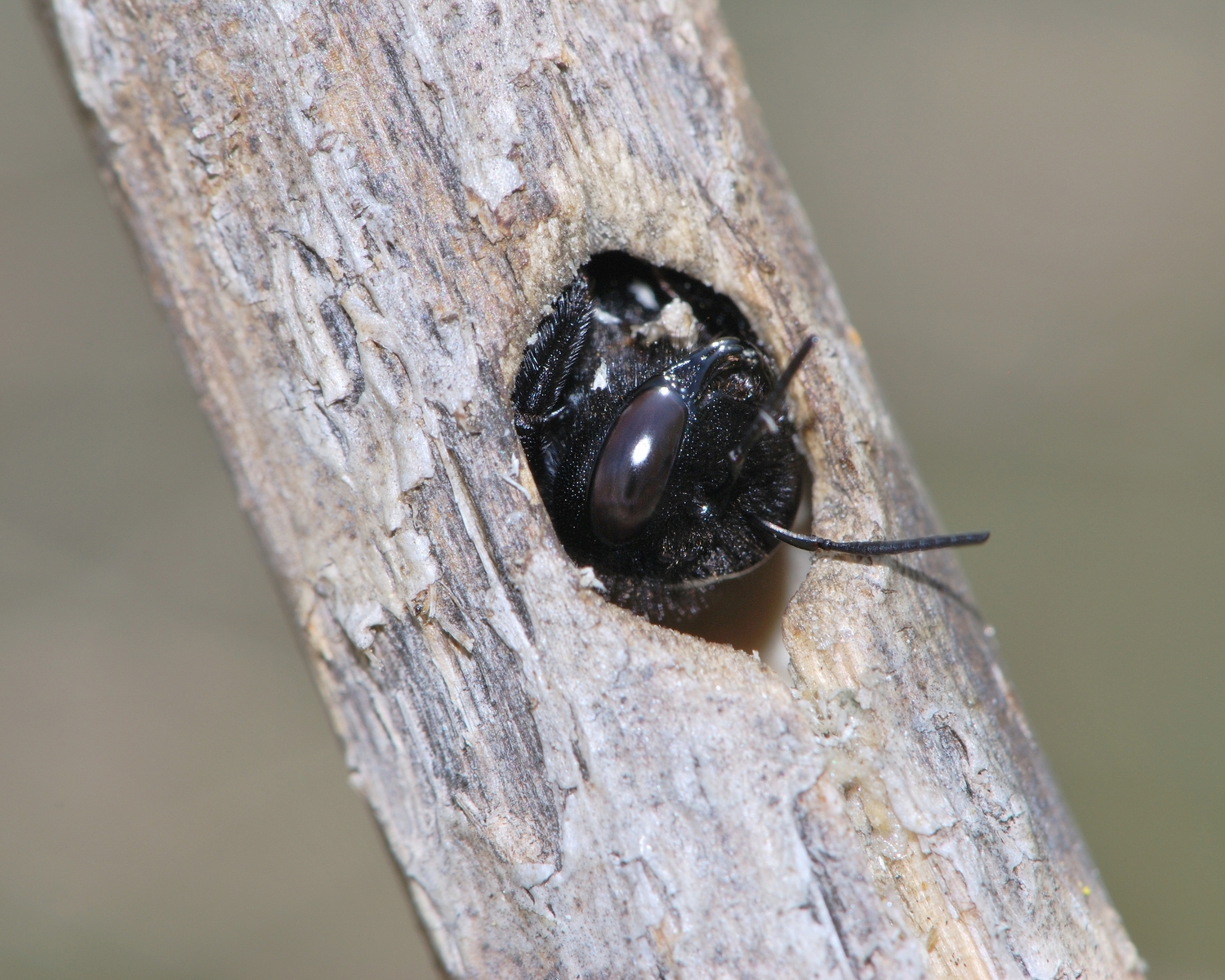
Did you know that caterpillars and solitary bees both use dead plant stalks to overwinter? Many hide inside the stems, but others attach themselves to the outside. Some species of swallowtail butterflies spend the winter as a chrysalis that looks like a dead leaf. They attach themselves to twigs, dead plants, and tree trunks. Native bumblebees, mason bees, and leaf-cutter bees live in cavities of plant material.
Yes, there is a wide array of important pollinators and beneficial insects spending the winter in your garden. Experience the thrill of their return if you take on these simple steps to protect them.
Provide a winter refuge by leaving an area of the yard untouched for plant stems, leaves, and yard debris to decompose, away from leaf blowers or mowers. Removing dead stems in gardens in the fall runs the risk of killing butterflies and other pollinators. Don’t remove leaves, and keep your yard free of pesticides and herbicides.
Species that overwinter as a chrysalis include cabbage white butterflies, monarch butterflies, sulphur butterflies, cecropia moths and swallowtails. Hawk moths spend the winter in warm cocoons underground.
These species survive as caterpillars: red-spotted purple butterflies, meadow fritillary butterflies and viceroy butterflies, the latter of hibernate among the vegetation, in seed pods, in silken nests and in rolled-up leaves.
Although solitary bees are often overlooked because they don’t have colonies, red mason, leaf cutter and wool carder bees actually pollinate more efficiently than honeybees. During the winter, many of them hide in the hollow stems of beebalms or ornamental grasses. Others burrow into the ground to overwinter or make use of manmade bee hotels.
Hoverflies overwinter in two ways. Some hide in soil as full-grown larvae, and others find shelter as adults. The overwintering adults appear on the first warm days of spring, searching for aphid-infested plants to lay their eggs on, as the larvae of most species feed on aphids.
There are more than 400 lady beetle species in North America that feed on common garden pests — aphids, mites, white flies and scale insects. One ladybug can eat a dozen insects a day, so gardeners and farmers love them. Although invasive species, such as Asian lady beetles, often find their way into homes and become pests, native species only overwinter outside. They rely on cover under rocks, in hollow logs and beneath leaves to survive until spring.
Wait until spring (after the temperatures have reached at least 50 for 10 consecutive days) to do the majority of your garden cleanup. Not only is this less work for you this fall but you will delight in all the birds feeding on the seedheads that you have left in the garden. I find my winter garden to be a lovely sight. I view it fondly knowing that when spring arrives I will be welcoming a wide array of pollinators and beneficial insects back to provide beauty and benefits to my small ecosystem.
Melissa Morgan Nelson is the president of the Westhampton Garden Club and a member of the club’s conservation committee.